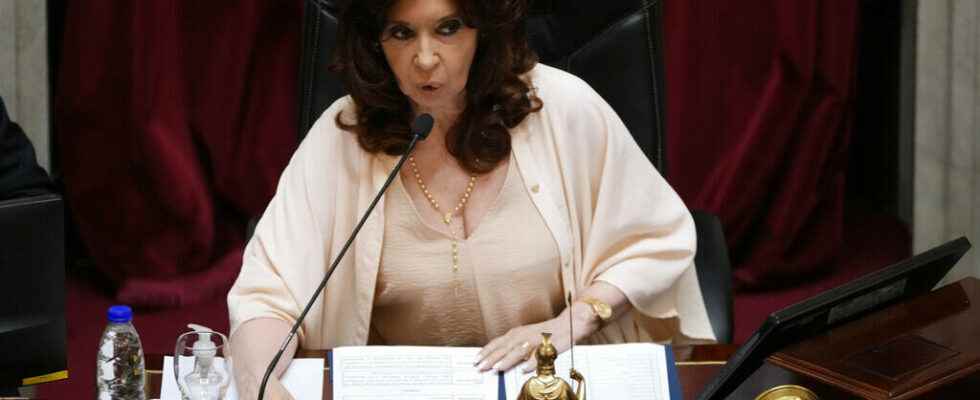The agreement, which had already received the approval of the Chamber of Deputies a week ago, allows the country to refinance the debt of 44 billion dollars inherited from the previous government and to remove the specter of default.
With our correspondent in Buenos Aires, Jean Louis Buchet
Fifty-six votes for, thirteen against, three abstentions. It is a success for Peronist President Alberto Fernández and a defeat for Vice President Cristina Kirchner, his ally in the ruling coalition. The vice-president and president of the Senate was absent at the time of the vote, no doubt so as not to live a humiliating defeat.
Former President Christina Kirchner, hostile to the agreement with the IMF, was little followed by her faithful. Formerly a dominant figure in the government coalition, she now risks finding herself at the head of a minority faction of power, since the majority of Peronist parliamentarians and almost all the representatives of the centre-right opposition have supported the agreement signed with the IMF by President Alberto Fernández.
►Also read: In Argentina, the deputies approve the agreement with the IMF on the refinancing of the debt
The Monetary Fund will make eleven installments, one for each future maturity of the loan granted in 2018 to his predecessor Mauricio Macri. Argentina, which hopes to put these finances in order, will not start repaying the new loan until mid-2026.
If successful, a scenario far from impossible, as the IMF’s conditionalities are limited, Alberto Fernández could relaunch a presidency hitherto chaotic. Cristina Kirchner would then be marginalized in Argentine political life.
►Also read: Argentinian President Fernandez unveils IMF debt deal
►Also read: in Argentina: the popular consultation continues against the payment of the debt to the IMF
